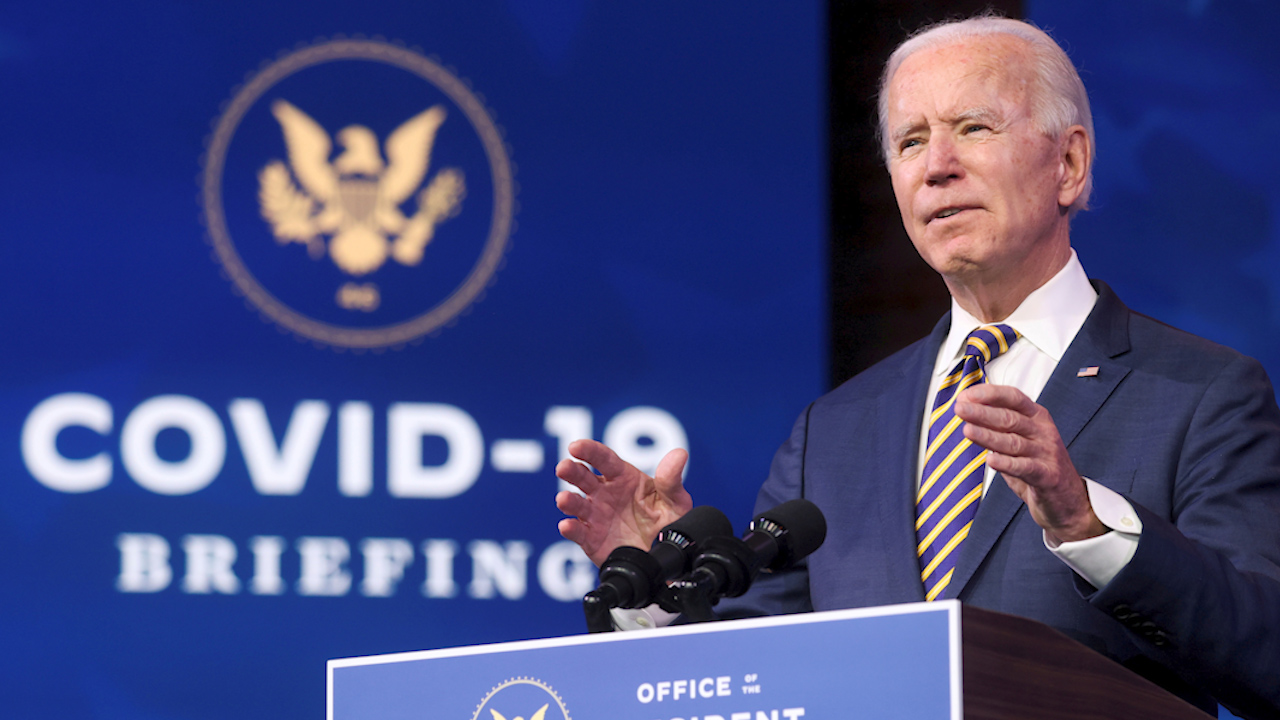02:52

One of the most abrasive and strained chapters in the centuries-long U.S.-Europe relationship is coming to a close. When Joe Biden is sworn in as the 46th President of the United States next Wednesday, Europe will be watching closely.
Biden's triumph over Donald Trump was warmly welcomed in most corners of the continent.
"To be frank, the last four years of President Trump have been extremely damaging," said David O'Sullivan, the former EU ambassador to the U.S. during the Obama and Trump presidencies.
O'Sullivan added that he struggled to find any policy area where there was a common view across the Atlantic: "We clashed on just about everything," he said.

Perhaps the most immediate and noticeable change will be a simple return to diplomatic decorum. Trump's four years in office were peppered with transatlantic acrimony, and while he was hardly the first shock to the EU-U.S. relationship, he has been the most vocal and abrasive, regularly firing off tweets to air his many grievances.
Don't expect that from Biden. He'll let his experienced team of diplomats do most of the dirty work, behind closed doors. Unlike Trump, Biden really believes in the power of multilateralism, which will put the EU and U.S. back on the same page.
That doesn't mean there won't be clashes. There are still plenty of areas where the two sides don't see eye-to-eye, including on defense, trade, and global policy. The important thing is that when disagreements arise, there are resolved respectfully.

Europe is leaving behind a troubled relationship with the Trump administration. /Mandel Ngan/AFP
Europe is leaving behind a troubled relationship with the Trump administration. /Mandel Ngan/AFP
Trade and tariffs
Abolishing tariffs is a top priority for Brussels. In 2018, Trump slapped levies up to 25 percent on EU steel and aluminum, which led Europe to retaliate. Chances are high that those tariffs will be rolled back fairly quickly.
It's also possible that the Biden administration can help end an $11.5 billion tit-for-tat tariff war over Boeing and Airbus subsidies. Despite Europe's offers to resolve the 16-year old spat by paying back some of the subsidies, the Trump administration said it wasn't enough.
One thing not to expect is for either side to suggest a more formal trade deal. The failed TTIP negotiations under the Obama administration still hang in the air.
Tackling climate change
Much to the chagrin of Europe, President Trump yanked the U.S. out of the Paris Agreement in November 2020. Biden has pledged to rejoin the climate accord as soon as he takes office and to advance the U.S.'s climate commitments to make up for lost time.

European Commission President Ursula von der Leyen presented an ambitious European Green Deal in her first 100 days in office. / AP Photo / Olivier Matthys
European Commission President Ursula von der Leyen presented an ambitious European Green Deal in her first 100 days in office. / AP Photo / Olivier Matthys
This is music to the ears of European leaders. Brussels has made tackling climate change its raison d'etre, pledging to be climate-neutral by 2050.
It will happily welcome the return of the world's largest economy to the ecological fight. Europeans believe there can be collaboration on the development of green technologies and a global regulatory framework for sustainable finance.
Taxing big tech and data sharing
One of the biggest rows looming will be over technology.
In December, the European Commission tabled legislation to hold tech giants more accountable for the content on their platform. Fines could run as high as 6 percent of global turnover or worse – the companies could be forced to break up.
Europe is also mulling a digital services tax. Washington sees all of these moves as targeting U.S. tech companies.

The EU is trying to rein in the power of U.S. Big Tech. /Reuters
The EU is trying to rein in the power of U.S. Big Tech. /Reuters
This issue isn't going anywhere fast. At best, the Biden administration could agree to rejoin Organisation for Economic Co-operation and Development negotiations on a global digital tax scheme. But that would require European member states to hold off on introducing taxes of their own in the meantime. You listening, France?
A trickier issue to resolve will be over data sharing.
A July decision by the European Court of Justice has hampered the flow of personal data across the Atlantic after the court ruled that the U.S. had subpar defenses in place to protect against government surveillance. To meet European standards, the U.S. would have to overhaul federal and state rules, which is possible, but highly unlikely.
A more independent Europe
The buzz word in Europe is "strategic autonomy" meaning that even as Brussels works to patch up the transatlantic relationship, it will simultaneously work towards greater independence.
Deep and increasingly polarizing divisions in the U.S. have left Europe wary of who may come to power next time around. Expect Europe to be bolder in protecting its own interests, as it did when clinching the EU-China Investment agreement in December despite the incoming Biden administration requesting consultation on it first.
This does not in any way mean either side is looking to "decouple" – after all, annual trade is $1.4 trillion and both sides remain leading investors in the other.
They also share democratic beliefs which makes them strong allies on the global stage. That's not going to change anytime soon, which leaves them – in good times and in bad – the most deeply intertwined partners in the world.

